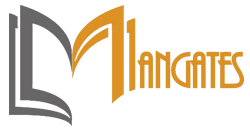Effective teamwork and group communication are essential for your professional and personal success. In this course you will learn to: make better decisions, be more creative and innovative, manage conflict and work with difficult group members, negotiate for preferred outcomes, improve group communication in virtual environments, develop a better overall understanding of human interaction, and work more effectively as a team. Our goal is to help you understand these important dynamics of group communication and learn how to put them into practice to improve your overall teamwork.
Duration Learning Credits
1 Day – 8 hours of 8 PDU’s
Session
Public Classroom Pricing:
Early Bird Price: CAD 649.00
Regular Price: CAD 799.00
Instructor-Led Virtual Live Pricing:
Early Bird Price: CAD 549.00
Regular Price: CAD 699.00
Private Group / In-House Learning:
Have a group of 3 or more people?
Register yourself with a special pricing and
request the training exclusively
Module 1
Module 1 is all about communication. But not the common sense or taken-for-granted notions of communication you might expect. Instead, we’re going to rethink communication and challenge some of the conventional wisdom about communication that is common in our society. We’ll compare and contrast different theories or models of communication, and see if we can develop a more sophisticated understanding of communication to understand the complexities of human interaction in today’s groups. We’ll also explore some of the hidden forces of group communication, like context, systems and institutions, and design. These are all things that are “present” in any group situation, influencing how we interact with each other, but easy to miss if we’re not looking. We want to expand our field of vision, so to speak, so we have a fuller understanding of what’s happening in any group situation.
Module 2
Module 2 focuses on group development and decision making. We’ll look at how groups come together through socialization, how they develop norms, and how roles emerge. And we’ll compare and contrast different models that explain these processes. We’ll examine the various decision making traps that groups can fall into, while also developing better practices for making good group decisions. And we’ll explore how groups can be more creative and innovative in their decision making.
Module 3
Module 3 is all about conflict, difference, and diversity. We’ll learn how groups can have a good fight and how you can choose the right words in a dispute…as well as how to negotiate with others when things get difficult. We’ll also explore why difference and diversity are so important for group communication, and how understanding the concept of identity is critical for our involvement in groups. And we’ll pay special attention to communication and gender, one of the most significant aspects of difference and diversity for groups to understand.
Module 4
Module 4 covers group communication and technology…an increasingly prevalent aspect of the modern landscape of group work we must understand. We’ll look at the concept of virtual work and how groups are using technology, as well as various models and theories of media functionality and information processing. We’ll cover several practical and conceptual issues we should always keep in mind when it comes to technology and group communication, and we’ll explore some cutting-edge thinking about technology and group work through the fascinating theory of sociomateriality.
Anybody who is interested in learning Group Communication Skills.
At the end of this stress management training you will be able to:
● Understand the complexities of human interaction in today’s groups.
● Examine the various decision making traps that groups can fall into, while also developing better practices for making good group decisions.
● Special attention to communication and gender, one of the most significant aspects of difference and diversity for groups to understand.
● How to negotiate with others when things get difficult.
● Learn how groups can have a good fight and how you can choose the right words in a dispute.
● We’ll cover several practical and conceptual issues we should always keep in mind when it comes to technology and group communication.
